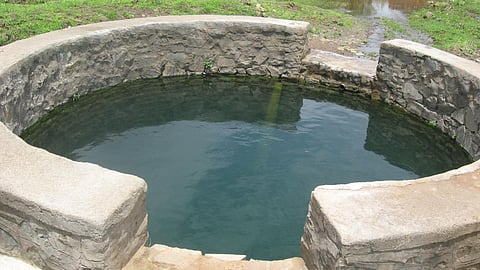
- Topics
- Feature
- Opportunities & Events
- About
- Hindi Portal
- Data
- Topics
- Feature
- Opportunities & Events
- About
- Hindi Portal
- Data

India is highly dependant on groundwater. As high as 85 percent of rural drinking water is derived from wells with 88 percent of it used for irrigation, and 48 percent of the urban also uses groundwater. The paper titled 'Shaping the contours of groundwater governance in India' published in the Journal of Hydrology: Regional Studies, informs that groundwater exploitation and contamination have found to affect as high as 60 percent of Indian districts.
Even though groundwater use has reached critical levels of exploitation, very little attention has been paid to its governance and to resource conservation and protection. Rather, the availability of groundwater has been attributed to chance that has triggered further extraction and increased contamination, which has now lead to a serious groundwater crisis in the country.
The paper argues that there is thus an increasing need to design a groundwater governance framework that is relevant to India’s unique groundwater situation and presents some basic ideas on a preliminary framework for the same, which could lead to more concrete policies, practices and institutions.
Aquifers form the fundamental units for good groundwater management while looking at groundwater abstraction and use. India's groundwater typology is based on six broad hydrogeological settings that represent aquifer systems.
Due to these complexities, it becomes very difficult to have a one-size-fits-all water governance paradigm that is often thought to be the best way forward in tackling groundwater management problems.
The paper argues that due to the common pool nature of groundwater in India, groundwater use needs management approaches that not only focus on groundwater settings but also take into consideration broader contexts of governance and the political economy.
The actual implementation of these strategies at the ground level will require a framework on groundwater governance, which is about decision-making on groundwater and involves individuals and/or organised entities at various levels. It involves the promotion of responsible collective action to ensure socially sustainable utilisation and effective protection of groundwater resources for the benefit of humankind and dependent ecosystems.
The four broad principles of groundwater governance include transparency, participation, information and the custom and rule of law, which need to be defined by efficient processes and supported by the art of administrative action and decision making. The use and application of the following aspects are important in the development and evolution of the groundwater governance framework in India:
The paper proposes a framework of roles at different levels, using basic administrative units along with the evolving institutional framework.
Enabling a balance between policy and practice will require focus at different levels of the administrative and governance structures in India, which include the following:
The paper concludes that developing a policy is often the first objective in a groundwater governance exercise. However, it would be more prudent to develop a groundwater policy only after the first few baby steps have been taken in the pursuit of piloting groundwater management in conjunction with the aquifer mapping programme that the CGWB has embarked upon at a national scale in India.
Please download a copy of the paper below.